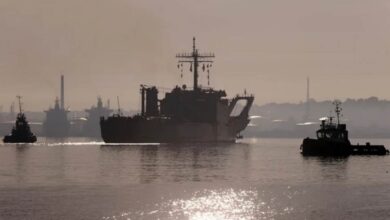Latin America:6 presidential elections in 2019
Listen this article
With the new year, new important elections arrive for the countries of Latin America

2019 comes loaded with important elections in Latin America. Although in 2018, three countries attended the polls (Brazil, Mexico and Colombia), in 2019 six countries in Latin America will do so. The 6 countries that will elect a new president are:
Leer en español: Latinoamérica: 6 elecciones presidenciales en 2019
-
Argentina
-
Bolivia
-
The Savior
-
Guatemala
-
Panama
-
Uruguay
El Salvador
The first country that will open the ballot boxes will be El Salvador on Sunday, February 3. The candidates who are in the race for the presidency are Josué Alvarado (VAMOS); Hugo Martínez (FMLN); Carlos Calleja (ARENA) and Nayib Bukele (GANA). The latter is the presidential candidate who is emerging as a favorite. As reported by Última Hora, Bukele receives the support of Salvadorans not only within the country but also those who are abroad.
If elected, the former mayor of San Salvador would become one of the youngest presidents to run the country. Bukele is 37 years old and according to a survey by the Technological University, 40.5% of those consulted support them. In addition, 44% of respondents say that Bukele is the one "better able to solve the problems of the people." For Salvadorans, the main problems lie in the lack of employment, health care, a high cost of living and insecurity, according to La Nación.
This year's elections will elect the president until 2024 and will be "the sixth presidential elections after the signing of the 1992 peace accords," as reported by Europa Press. However, for the BBC, despite the popularity of Bukele, winning the elections would have difficulties directing the country, because for a change it is necessary that within the Legislative Assembly there are deputies who support it.
Panama
The second on the list is Panama and the elections will take place on Sunday, May 5. Although until a few weeks ago there were no consolidated candidates, recently several alliances were made between different parties. According to the Panamanian newspaper La Estrella, the coalitions were made in the following manner: the Panameñista Party with the Partido Popular (PP). On the other hand, The Democratic Revolutionary Party (PRD) agreed to an alliance with the Nationalist Republican Liberal Movement (Molirena). Finally, the CDi collective achieved an agreement with the Alianza party.
Thanks to these coalitions, the names of the presidential candidates José Isabel Blandón (Panameñista Party) were announced; Laurentino Cortizo (Democratic Revolutionary Party); Saúl Méndez (Frente Amplio por la Democracia) and Rómulo Roux (Cambio Democrático). Despite the fact that there are still 5 months to go before the elections, according to StratMark Consultores SA, Laurentino Cortizo leads the intention of the vote with 44.5 percent in the intention to vote.
You may be interested in reading: 8 ambitious legislative bills in Latin America
Guatemala
June will be the month in which the president will be chosen in Guatemala. Due to tensions between the current president, Jimmy Morales and the International Commission against Impunity, corruption will be a central issue within these elections. So far, the candidates are Sandra Torres (UNE); Alejandro Giammattei (Vamos); Zury Ríos Sosa (Valor) and Edwin Escobar (PC).
There is no doubt that the central issues for this year's elections, besides corruption, will be the massive migration of Guatemalans to the United States and the lack of work.
Argentina
On October 27 the elections will take place. While there are still no presidential candidates, as these will come out of the primary elections to be held in August 2019, if they reach 1.5% of valid votes. It is speculated that the current president Mauricio Macri will run for a second term. Likewise, Cristina Kirchner is expected to run again for the presidency, despite the corruption scandals that surround her.
There is no doubt that the main issues around this election will be to see how Argentina manages the financial crisis that afflicts the country since last year, in order to propose strategies that help improve the Argentine economy.
Uruguay
Like Argentina, the elections will be held on October 27. According to BBC, the elections in that country will pretend to be calm. The challenge here will be for the Frente Amplio party, because they will have to choose a candidate who is equally acclaimed as were José Mujica and Tabaré Vázquez, who already announced that he would retire from politics, after three terms of government.
Read also: Evo Morales: eager for power
Bolivia
Without a doubt, these are the most awaited elections not only in the country but in Latin America. Because for the first time in more than 10 years, Evo Morales will have to present himself as a presidential candidate, after he was denied a new presidential term.
Things will be complicated for the popular president because, according to recent polls, former President Carlos Mesa takes an important advantage to Morales, and Mesa could run as the new president of Bolivia.
LatinAmerican Post | Laura Viviana Guevara Muñoz
Traanslated from "Latinoamérica: 6 elecciones presidenciales en 2019"





